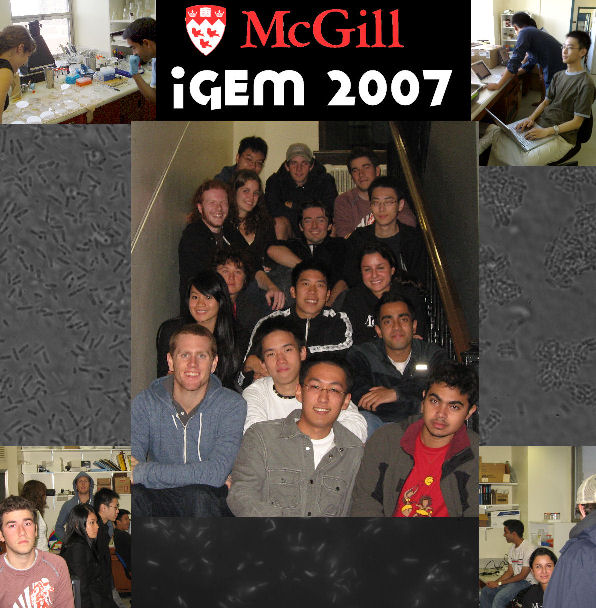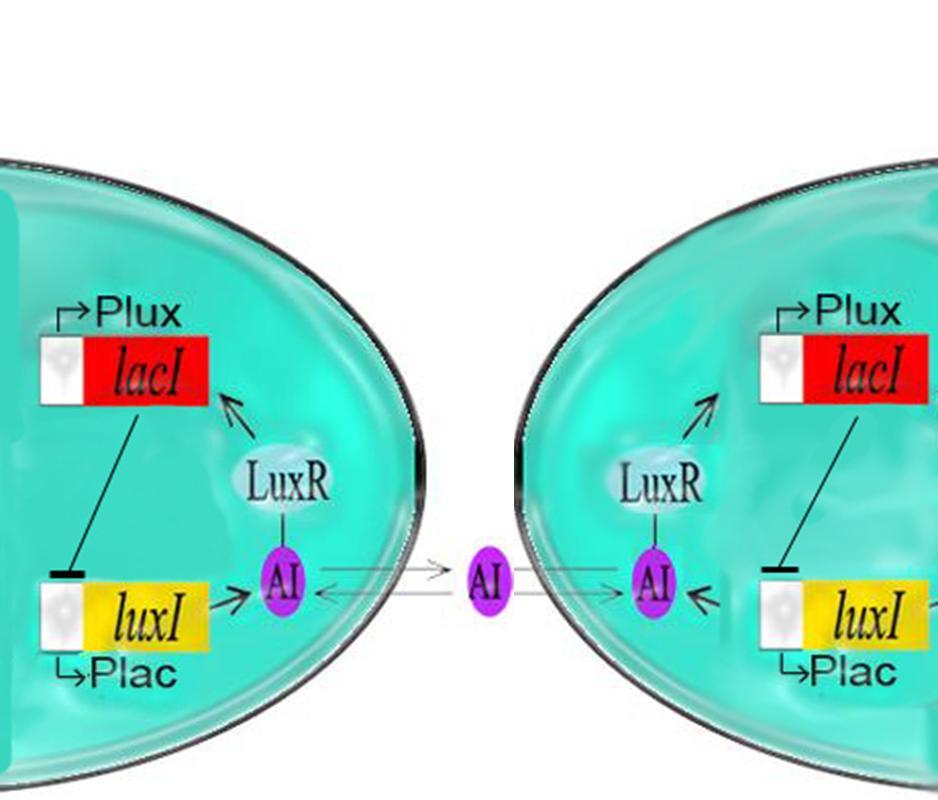McGill
From 2007.igem.org
(→Project Overview) |
(→Image:sine.jpg Pictures) |
||
| (61 intermediate revisions not shown) | |||
| Line 2: | Line 2: | ||
<center>The official wiki of the McGill University iGEM 2007 team of Montreal, Quebec, Canada</center><br> | <center>The official wiki of the McGill University iGEM 2007 team of Montreal, Quebec, Canada</center><br> | ||
| - | |||
{| cellspacing="2px" cellpadding="5" border="0" style="padding: 0; width: 935px; color: #000000; background-color: #ffffff;" | {| cellspacing="2px" cellpadding="5" border="0" style="padding: 0; width: 935px; color: #000000; background-color: #ffffff;" | ||
| width=750px style="padding: 20px; background-color: #ffffff; border: 4px solid #FF0000;" | | | width=750px style="padding: 20px; background-color: #ffffff; border: 4px solid #FF0000;" | | ||
| - | |||
| - | < | + | == == |
| + | <center>[[Image:McGillIgem2007team.jpg|center|400px]] | ||
| + | <html> | ||
| + | <style> | ||
| - | + | ul#list-nav { | |
| - | + | list-style:none; | |
| - | + | margin:20px; | |
| - | # | + | padding:0; |
| - | # | + | |
| - | + | } | |
| - | + | ||
| - | + | ul#list-nav li { | |
| - | # | + | display:inline |
| - | # | + | } |
| - | + | ||
| - | + | ul#list-nav li a { | |
| - | + | text-decoration:none; | |
| + | padding:10px 0; | ||
| + | width:130px; | ||
| + | background:#DB231E; | ||
| + | color:#eee; | ||
| + | float:left; | ||
| + | text-align:center; | ||
| + | border-left:1px solid #fff; | ||
| + | } | ||
| + | |||
| + | ul#list-nav li a:hover { | ||
| + | background:#FFFFFF; | ||
| + | color:#000 | ||
| + | } | ||
| + | </style> | ||
<br> | <br> | ||
| + | <ul id="list-nav"> | ||
| + | <li><a href="https://2007.igem.org/McGill/Project_Description">Project</a></li> | ||
| + | <li><a href="https://2007.igem.org/McGill/Modeling_and_Simulations">Simulations</a></li> | ||
| + | <li><a href="https://2007.igem.org/McGill/Team_2_More_Information">Animations</a></li> | ||
| + | <li><a href="https://2007.igem.org/McGill/Project_Overview">Future</a></li> | ||
| + | <li><a href="https://2007.igem.org/McGill/Results">Results</a></li> | ||
| + | <li><a href="https://2007.igem.org/McGill/Parts">Parts</a></li> | ||
| + | </ul> | ||
| + | </html> | ||
| + | </center><br><br><br><br> | ||
| - | + | == Project Overview == | |
| - | + | ||
| - | + | ||
| + | <u>'''Quorum-sensing coupled with the Repressilator'''</u> | ||
| - | + | Our project is a continuation of one of the projects we presented last year: a two-gene oscillator with an 'On' and 'Off' switch using LacI and LuxI. This simple relaxation oscillator could be used as a modular component for the synchronization of other complex oscillating systems such as the repressilator. | |
| + | Quorum-sensing coupling between cells is achieved with a diffusible autoinducer AI (AHL) made from LuxI which promotes the synthesis of LacI from pLux. As Lac accumulates, it represses pLac which controls the synthesis of LuxI.<br> | ||
| + | <center> | ||
| + | [[Image:2gene oscillator.jpg|320px]]<br> | ||
| + | </center><br> | ||
| + | <br> | ||
{| cellspacing="2px" cellpadding="20" border="0" style="padding: 0px; width: 750px | {| cellspacing="2px" cellpadding="20" border="0" style="padding: 0px; width: 750px | ||
|-valign="top" | |-valign="top" | ||
|width=240px style="padding: 5px| | |width=240px style="padding: 5px| | ||
| - | ==In the Lab== | + | ==[[Image:bacteria1.jpg]] In the Lab== |
[[McGill/Lab Notebook|Lab Notebook]]<br> | [[McGill/Lab Notebook|Lab Notebook]]<br> | ||
| - | [[McGill/Lab Protocols|Lab Protocols]] | + | [[McGill/Lab Protocols|Lab Protocols]]<br> |
| + | [[McGill/Team_2_Background_Papers|Background Papers]] <br> | ||
| + | |||
|width=240px style="padding: 5px| | |width=240px style="padding: 5px| | ||
| - | == The Team == | + | |
| - | [[McGill/Team Roster| Team | + | ==[[Image:greenbulb.jpg]] The Team == |
| + | [[McGill/Team Roster| Team Members]]<br> | ||
[[McGill/Mailing List|Mailing List]] | [[McGill/Mailing List|Mailing List]] | ||
| - | | | + | |
| + | |width=240px style="padding: 5px| | ||
| + | |||
| + | ==[[Image:sine.jpg]] Pictures == | ||
| + | [http://www.flickr.com/photos/cumbers/archives/date-posted/2007/08/21/ Brown University Meetup] (External) <br> | ||
| + | [[McGill/RI meetup|Rhode Island Meetup]]<br> | ||
| + | [[McGill/urc|McGill Research Conference]]<br> | ||
| + | |||
| + | Please feel free to check out our work from last year at [https://2006.igem.org/wiki/index.php/McGill_University iGEM McGill 2006] | ||
Latest revision as of 03:57, 27 October 2007
Project OverviewQuorum-sensing coupled with the Repressilator Our project is a continuation of one of the projects we presented last year: a two-gene oscillator with an 'On' and 'Off' switch using LacI and LuxI. This simple relaxation oscillator could be used as a modular component for the synchronization of other complex oscillating systems such as the repressilator. Quorum-sensing coupling between cells is achieved with a diffusible autoinducer AI (AHL) made from LuxI which promotes the synthesis of LacI from pLux. As Lac accumulates, it represses pLac which controls the synthesis of LuxI.
|


